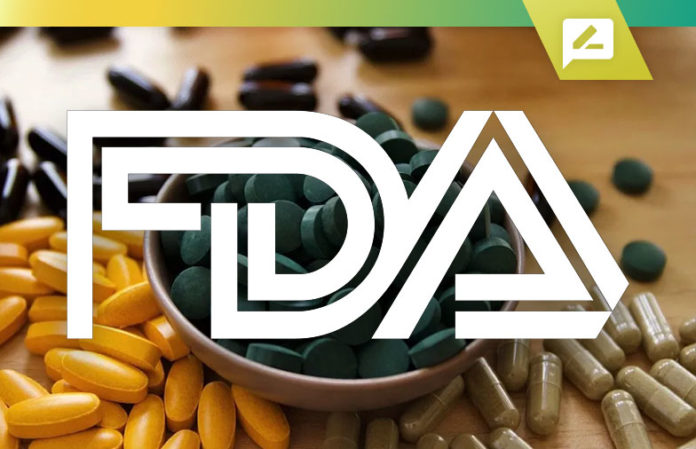Although the supplement industry has exploded in popularity in the last decade, not all supplements are created equal. The prevalence of scams, faulty products, and ineffective supplements in this growing market makes it necessary for consumers to use every tool at their disposal to vet and examine the companies they choose to do business with.
To substantiate their legitimacy, supplement manufacturers have a few options. Supplement organizations can obtain a GMP certification, NSF certification, and some other form of official certification about the quality of their facility, manufacturing process, or product.
Good Manufacturing Practice (GMP) certification may help you separate good and bad supplements.
Does GMP certification really mean anything? Is GMP certification good? How does GMP work?
Today, we’re explaining everything you need to know about GMP certification, FDA supplement regulation, and how to find dietary supplements that are safe and effective.
Contents
The FDA and Dietary Supplements
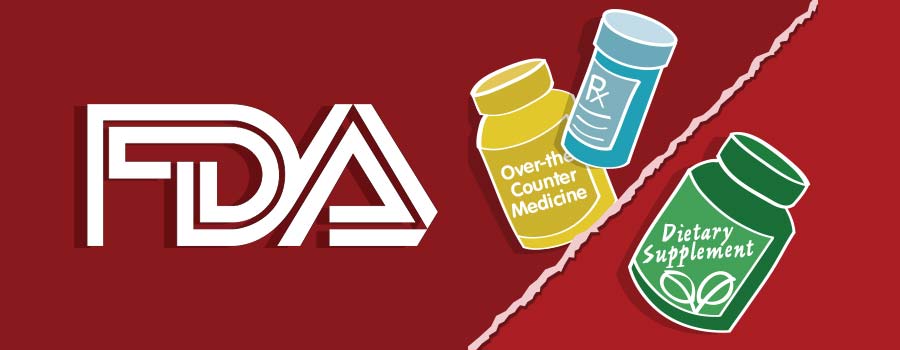
The United States Food and Drug Administration is mostly concerned with the two products in its name: foods and drugs. The FDA strictly regulates both foods and drugs.
A significant chunk of products, however, fall into neither category. The FDA calls these products dietary supplements.
Technically, the FDA is still in charge of regulating the dietary supplement space. They regularly take action against bad supplement manufacturers. They even assign certain certifications to dietary supplement manufacturers. The FDA does not allow supplements to make certain health benefit claims, and supplement manufacturers must make supplements in facilities of a certain type and caliber to be allowed to do business in the United States.
How Does the FDA Regulate Dietary Supplements?
The FDA oversees the manufacturing, testing, and sales practices of many industries, including the dietary supplement industry.
The FDA wants to make sure dietary supplement makers are using safe and honest marketing, for example. The FDA also defines how supplements can be manufactured in the United States. It defines how companies can deliver supplement ingredients – say, as part of a tablet, capsule, or powder.
Put simply, there are many regulations about dietary supplements in the United States, and many of these regulations fall squarely in the hands of the Food & Drug Administration.
FDA Definitions for Supplements
Here’s how the FDA defines a supplement:
“A dietary supplement is a product taken by mouth that contains a “dietary ingredient” intended to supplement the diet.”
The FDA adds that the “dietary ingredients” inside supplements can include, “vitamins, minerals, herbs or other botanicals, amino acids, and substances such as enzymes, organ tissues, glandulars, and metabolites.”
“Dietary supplements can also be extracts or concentrates, and may be found in many forms, including tablets, capsules, softgels, gelcaps, liquids, or powders.”
The FDA does allow supplements to be in other forms than the ones listed above, such as in a bar. However, the organization emphasizes that, “if they are, information on their label must not represent the product as a conventional food or a sole item of a meal or diet.”
Most of the FDA’s wording about supplements comes the Dietary Supplement Health and Education Act (DSHEA) of 1994, which is when Congress defined the term “dietary supplement”.
The DSHEA Act of 1994
The Dietary Supplement Health and Education Act (DSHEA) was signed into law by President Bill Clinton in October 1994.
Before this act, dietary supplements received the same FDA scrutiny as foods. The new law created a new regulatory framework specifically for dietary supplements.
Under DSHEA, supplement manufacturers are responsible for making sure supplements are safe, use approved ingredients, and make reasonable health claims.
Additionally, under the DSHEA, supplements do not need approval from the FDA before they are marketed to consumers. Foods and drugs do need approval from the FDA, but supplements do not.
FDA Labeling Laws for Supplements
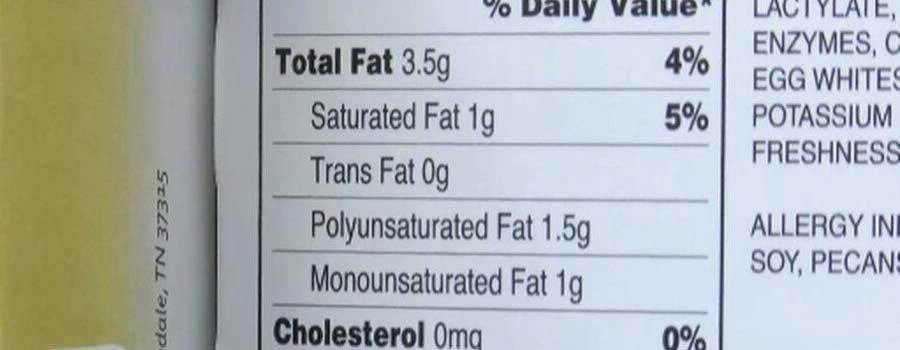
Any product that intends to be regulated as a dietary supplement must be explicitly labeled as a dietary supplement.
The FDA allows a little leeway here. They allow calcium supplements to be labeled as Calcium Supplements, for example, or amino acid supplements to be labeled as Amino Acid Supplements.
The more important labeling rules for supplements, however, are the rules governing advertised health benefits. Supplement manufacturers are not allowed to be marketed as a treatment or cure for something, for example. They also cannot advertise the ability to alleviate any symptoms of a medical condition.
Because of these labeling laws, supplement manufacturers will use terms like “support brain health”. That’s okay. It’s not okay, however, to advertise the supplement as a way to “treat Alzheimer’s” or “improve brain health”.
Today, many supplements continue to walk a fine line with health benefits. A good marketer can create a supplement label that is FDA compliant and seems to advertise health benefits.
Supplement Ingredients and the FDA
Up above, we mentioned that dietary supplement ingredients can include vitamins, minerals, herbs, botanicals, amino acids, enzymes, organ tissues, glandulars, and metabolites.
How does the FDA decide what is and isn't safe for supplements? How does the FDA pick certain supplement ingredients?
Generally, any ingredients in a supplement must also be found in food. There’s a lot of calcium in milk, for example, which is why the FDA permits calcium supplements. It’s a naturally-occurring ingredient.
For the same reason, the FDA does not approve of adding aspirin to supplements. Aspirin is not a naturally-occurring ingredient found in any food, which means that its addition would mean that the supplement ceases to be classified as such.
Supplement manufacturers are allowed to add ingredients that are not recognized as dietary ingredients. In order to do that, however, they first have to apply to have that ingredient approved by the FDA.
Does the FDA Require Supplements to Be Proven Safe?
The FDA does not require supplements to be proven safe before retail sale. Supplement manufacturers do not need to provide trials or studies verifying the safety of their products.
Why doesn’t the FDA require safety trials for supplements?
Well, the FDA assumes that any ingredient regarded as safe for consumption in food is safe for consumption in dietary supplements. If you can consume calcium naturally in milk, for example, then it stands to reason that you can consume it safely in a dietary supplement.
How the FDA Approves New Dietary Supplement Ingredients
Most supplement ingredients are already recognized as safe. However, new supplement ingredients appear on the market every year. That’s why some supplement makers approach the FDA with a request to use the new supplement.
Specifically, manufacturers of dietary supplements are required to notify the FDA of the use of any new dietary ingredients (NDIs) that were not marketed before October 15, 1994.
That’s a problem because, as the FDA admits, “there is no authoritative list of dietary ingredients that were marketed in dietary supplements before October 15th, 1994.”
So what’s the difference between a new dietary ingredient and a pre-1994 ingredient?
To be considered a “pre-1994” dietary ingredient (no approval required), an ingredient must be a vitamin, mineral, herb, botanical, amino acid, concentrate, metabolite, constituent, or extract that was sold in the United States before October 15, 1994. It can also be “a dietary substance for use by man to supplement the diet by increasing the total dietary intake”.
A new dietary ingredient (NDI), meanwhile, is any vitamin, mineral, herb, botanical, amino acid, concentrate, metabolite, constituent, or extract that was not sold in the United States in a dietary supplement before October 15, 1994.
Obviously, finding records to prove that an ingredient or additive was used before October 15, 1994 can be difficult. This part of the process is generally very complex.
Existing Ingredients
Certain ingredients are considered existing ingredients. If you add an existing ingredient to your supplement, then you do not need to notify the FDA about new ingredient status. Existing ingredients fall into one of the following two categories:
The ingredient is present in the food supply and has not been chemically altered
The manufacturer presents evidence to the FDA, and gains approval, supporting claims of the safety and efficacy of the ingredient as a food ingredient
A supplement ingredient only needs to fall into one of these two categories to be considered an existing ingredient.
Generally Regarded As Safe (GRAS) Approval
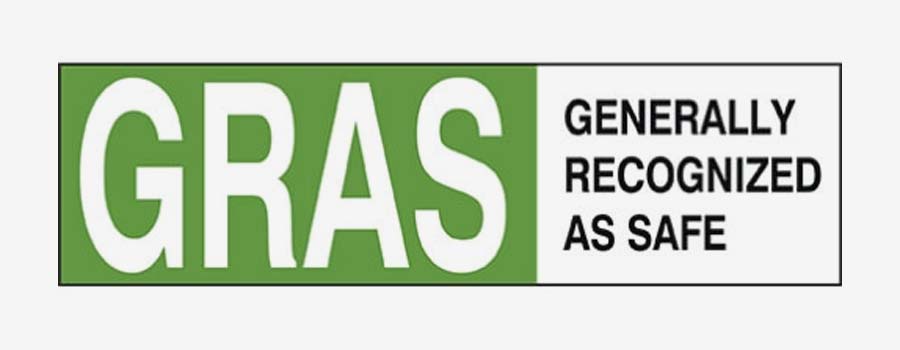
Supplement manufacturers are required to seek FDA approval known as Generally Regarded As Safe (GRAS). This approval indicates an ingredient is considered safe to be added to food items.
An ingredient like calcium, for example, which is used to fortify some founds, has earned GRAS status.
How New Ingredients Are Registered with the FDA: An Example
We recently saw a great illustration of how a new ingredient is registered with the FDA. Supplement maker Chromadex created a compound called Niagen, which is chemically similar to a compound called Nicotinamide riboside. Our bodies naturally convert niacin – which is recognized as safe (GRAS) – into Nicotinamide riboside. However, Niagen/Nicotinamide riboside is still considered a new ingredient because it’s a chemical alteration of niacin and it was not marketed as a supplement before October 15, 1994.
To get Niagen supplements sold, Chromadex had to seek GRAS approval. Because of this approval, Niagen can now be sold as a “new” dietary ingredient.
And, because of this approval, Niagen can be added to foods. It’s unlikely we’ll see it happen. However, it’s now permitted for food companies to add Niagen to food products. You might see enriched bread with Niagen, for example, or fortified milk with Niagen.
Can Supplements Combine Drug and Supplement Ingredients?
Up above, we mentioned that supplements can contain calcium because calcium is found in milk, but they can’t contain aspirin, because aspirin isn’t found in anything.
The FDA forbids dietary supplements from containing any compounds that are approved as a new drug or biologic for which clinical trials and scientific study has been completed.
Once a supplement contains any ingredients that fall into this category, the supplement can no longer be labeled as a dietary supplement.
That’s why you can’t see an acai berry supplement mixed with ibuprofen and sold as a supplement, for example.
However, drug makers can add acai berry extract – or any supplement ingredient – to a drug. An over-the-counter drug (any drug sold without a prescription) could contain ibuprofen with acai berry. And, that drug could still market itself as a treatment for inflammation.
There’s a reason why the FDA uses this approach: the FDA does not want to supplement makers to advertise something like acai berry as a treatment for inflammation. People take the acai berry supplement and discover it works – but it only works because the supplement contains ibuprofen. It would trick people into thinking that natural supplements have certain benefits when those benefits are really coming from the pharmaceuticals.
How Does cGMP Certification Work?
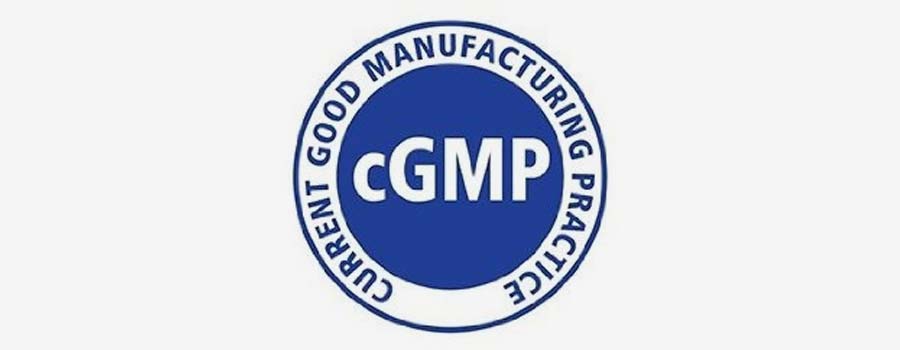
Current Good Manufacturing Practices (cGMP) play an important role in the supplement industry.
Many are surprised to learn that dietary supplement manufacturer regulations are mostly similar to the current good manufacturing practices for pharmaceutical companies. The FDA has issued a set of guidelines – called cGMP – to instruct manufacturers in any industry on responsible manufacturing practices.
These manufacturing practices are designed to ensure products sold to consumers do not cause harm.
The FDA has released a set of cGMP requirements specifically for dietary supplements. You can view the rules here. The document is tens of thousands of words long. It goes into significant detail at every step. We’ve summarized the key points of cGMP for supplement makers here:
Quality Control: cGMP guidelines establish industry standards for cleanliness and many other aspects of quality control. cGMP guidelines cover bath production records, ingredient verification processes, storage, distribution, dietary supplement labeling, and more.
Contract Manufacturing: Many supplement companies don’t actually make their own supplements. They contract with third parties. In this case, the supplement company is considered the “own label distributor”, and the supplement company does not have a manufacturing facility. However, the supplement maker is still responsible for asserting cGMP compliance in any third party facility they contract with.
There is No FDA cGMP Certification Process
The FDA has a huge list of cGMP requirements. However, many are surprised to learn there’s not a specific FDA cGMP verification process.
The FDA does not individually certify manufacturing facilities.
However, the FDA will come down harshly on anyone discovered not to be in cGMP compliance. That’s why supplement manufacturers have turned to third parties for GMP certification.
Third Party GMP Certification
The FDA does not provide GMP certification. However, GMP certification is tricky, which is why supplement manufacturers rely on third parties for GMP certification. Third parties verify a facility meets with cGMP requirements.
NSF International
NSF International is the best-known third party GMP certification organization. NSF offers specific certifications for dietary supplement facilities and supplements. That means you could buy an NSF-certified supplement that has been made in an NSF-certified cGMP facility.
In order to be considered an NSF-certified supplement, the supplement must meet certain requirements. It must be made in an NSF-certified cGMP facility, for example.
The NSF keeps an updated list of NSF-certified products, services, and manufacturing facilities. The NSF’s list includes the type of supplement manufactured, the recommended daily serving size, the manufacturing location, and other information.
NSF Certified for Sport
The NSF has different levels of certification.
Typically, manufacturers are not able to place NSF certification labels on their products even if they were manufactured in an NSF-certified facility. To place an NSF certification label on their products, manufacturers must produce supplements in a facility that has been NSF Certified for Sport.
The NSF Certified for Sport label is important. It verifies that no ingredients banned from athletic competitions are present in the product. The NCAA, the Olympics, and other major sport governing bodies ban certain ingredients. When you buy an NSF Certified for Sport product, it guarantees no banned ingredients are present.
NSF Contents Tested & Certified
The NSF has relaxed its label requirements for NSF certification in recent years. Historically, NSF certified products needed to be made in NSF Certified for Sport facilities (as described above). Today, however, the NSF offers a Contents Tested & Certified certification for individual supplements.
Individual supplements can meet the Contents Tested & Certified requirements, then add the NSF-Certified symbol on their label.
United States Pharmacopeia (USP)
Some supplements use USP certification. USP certification isn’t as common as NSF or GMP certification.
United States Pharmacopeia verification is provided by a non-profit group named the United States Pharmacopeia Convection. The organization updates its guidelines annually to meet the best industry practices.
USP offers verification services for pharmaceuticals, dietary supplement ingredients, and inactive ingredients (called excipients). The organization also offers GMP verification services – similar to NSF.
In practice, USP certification is less commonly used than NSF certification. However, major supplement makers like NatureMade, Kirkland Signature/Costco, and TruNature are all USP verified. You can view a list of USP verified dietary supplements here.
FDA cGMP Compliance Versus NSF-Registered GMP

A facility that is FDA cGMP compliant is generally regarded as a lower-quality facility than one that is NSF-registered GMP.
NSF-registered GMP ensures the facility went through an extra layer of testing by a trusted third party.
Patented Ingredients in Dietary Supplements
Dietary supplements cannot be patented because they contain ingredients found in nature. A company can’t file a patent for calcium, for example, because calcium is everywhere. It’s ridiculous for a company to hold a patent for natural compounds.
Natural ingredients cannot be patented, although the processes used to make those natural products can be patented.
Let’s say a company discovers a new way to create calcium. It can synthesize calcium more cheaply than any competing supplement company.
That’s why we see certain patented ingredients appear in many supplements.
We see compounds like BioPerine, for example, a patented type of black pepper extract. We also see Meriva (a patented form of turmeric) or Opitac (a patented version of reduced glutathione).
Patented ingredients are a sign of quality. Patented formulas are less likely to have impurities or contaminants than non-patented ingredients.
Top 3 Ways to Check Dietary Supplement Quality

Verifying dietary supplement quality can be confusing. Here are some tips for checking the quality of a dietary supplement:
Check for FDA Warning Letters: The FDA issues warning letters when manufacturers violate cGMP regulations. Remember: the FDA does not offer cGMP verification services itself. That means supplement makers can make dozens of violations before getting caught. Some manufacturers never get caught. The FDA has a searchable database of all warning letters here: http://crnusa2.org/. Keep in mind that some reputable companies have received FDA warning letters. Some manufacturers had a small issue, fixed it, and moved on. Other companies have received dozens of FDA warning letters.
Check for NSF Certification: NSF certification is a big deal in the supplement space. The NSF verifies ingredients, manufacturing facilities, and supplements. Check NSF GMP registration here to verify your supplement company uses a high-quality facility. Or, check NSF Certified for Sport registration here. However, be aware that some supplement companies contract to third-party facilities. They don’t disclose these third party facilities (it’s a trade secret), even though the facilities are NSF certified.
Ignore Supplement Reviews from Customers Online: Every industry has fake reviews. The supplement industry, however, is particularly bad for fake reviews. 100 five-star reviews on Amazon could be the difference between a top listing and a bottom listing. Supplement makers frequently manipulate customer reviews – so it’s better to just ignore them. Instead, read independent reviews from trusted experts – like our own reviews.
Final Thoughts
The FDA plays a crucial role in protecting Americans from unsafe, ineffective supplements.
Because of the FDA’s guidelines and regulations, dangerous products are not sold on store shelves. Products made in unsafe manufacturing facilities are not sold to consumers.
However, the FDA’s supplement regulation system is far from perfect. The FDA mostly takes action against supplement makers after a violation has occurred, for example.
Ultimately, dietary supplements fall into a grey area of regulations. The FDA has specific guidelines for supplement manufacturing, yet doesn’t actually certify manufacturing facilities, leaving it in the hands of independent third parties.
NSF International and the United States Pharmacopeia Convention (USP) both play a crucial role in the industry, helping manufacturers produce supplements in high-quality facilities. NSF and USP certification helps consumers ensure they’re taking high-quality supplements.
Despite all of these measures, the United States continues to be criticized for its poor regulation of dietary supplements. Supplement manufacturers in the United States have more free reign than supplement makers in other countries.
This poor regulation means Americans can access more supplements than in other countries – but it also means not all of those supplements are safe, effective, or produced in good facilities.
That’s why good supplement research is important, and that’s why we’re here to help.













![Bowflex Max Total: 2024 Fitness Workout Exercise Machine [Review] Bowflex Max Total: 2020 Equipment Review For Complete Upper and Lower Body Workout](https://www.advancedliving.com/wp-content/uploads/2019/12/Bowflex-Max-Total-218x150.jpg)


